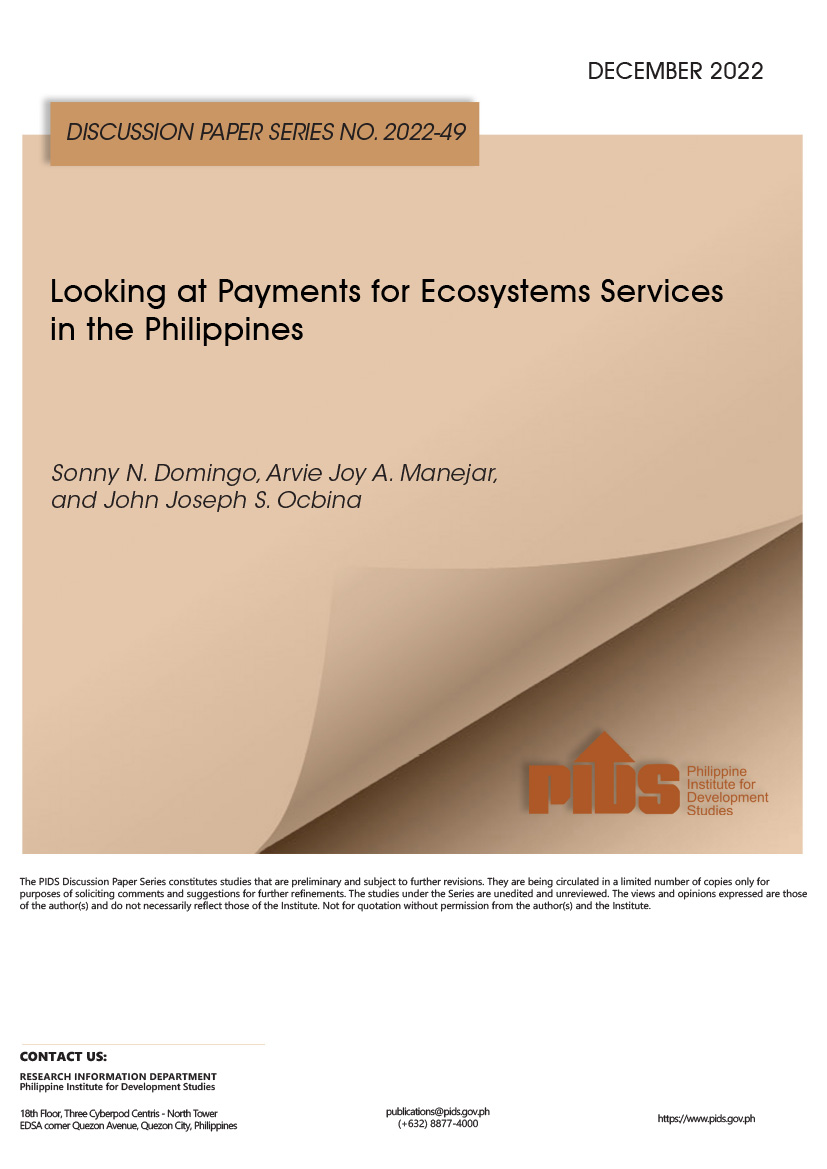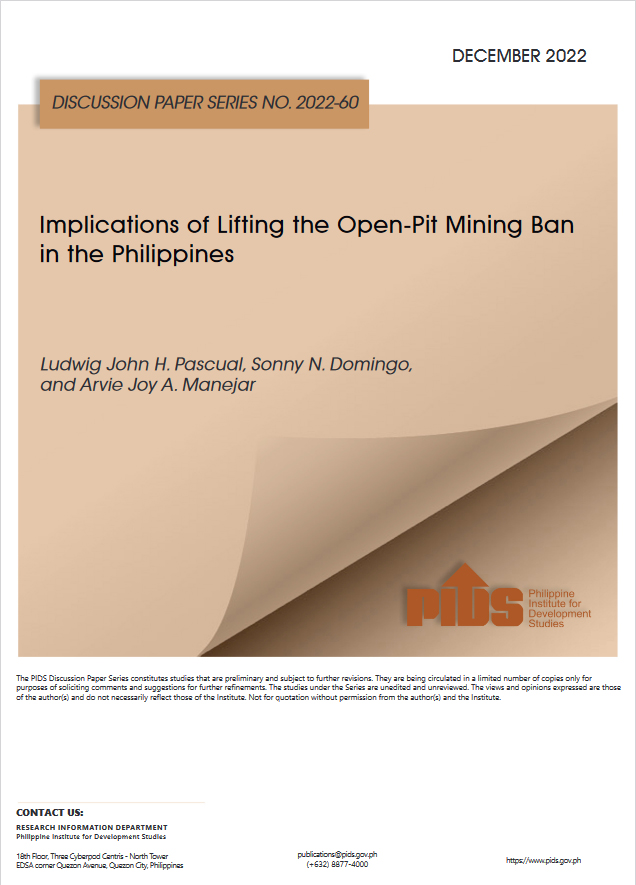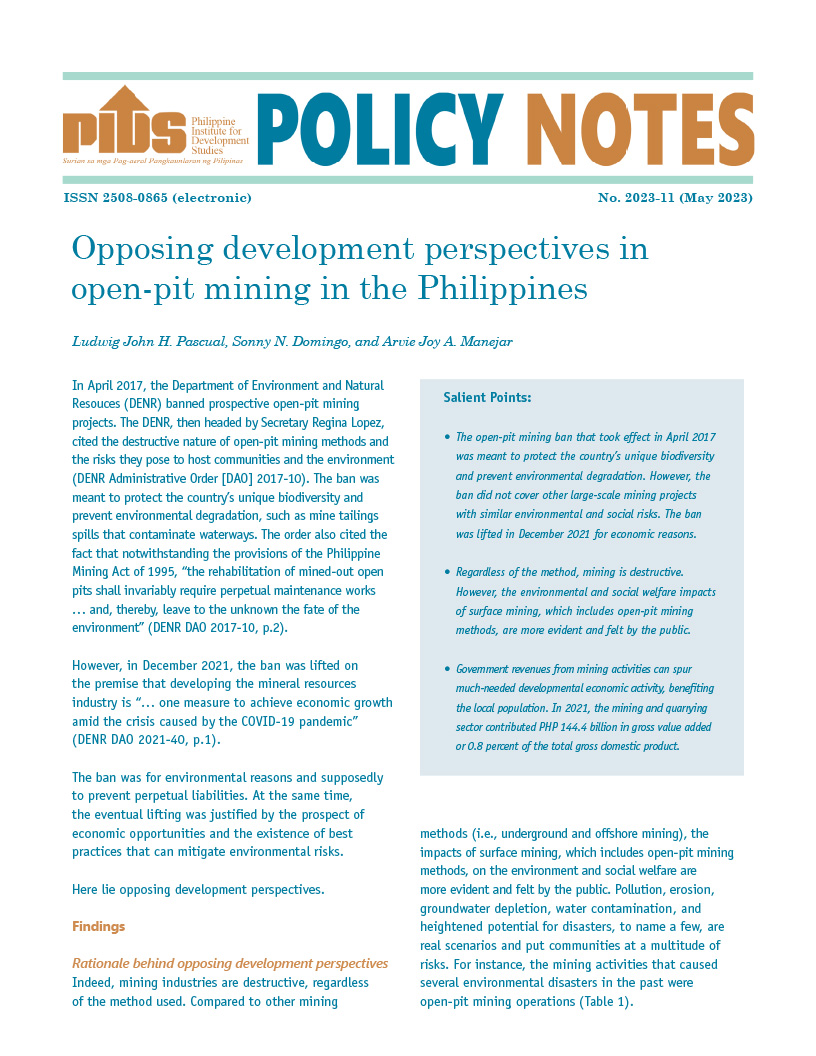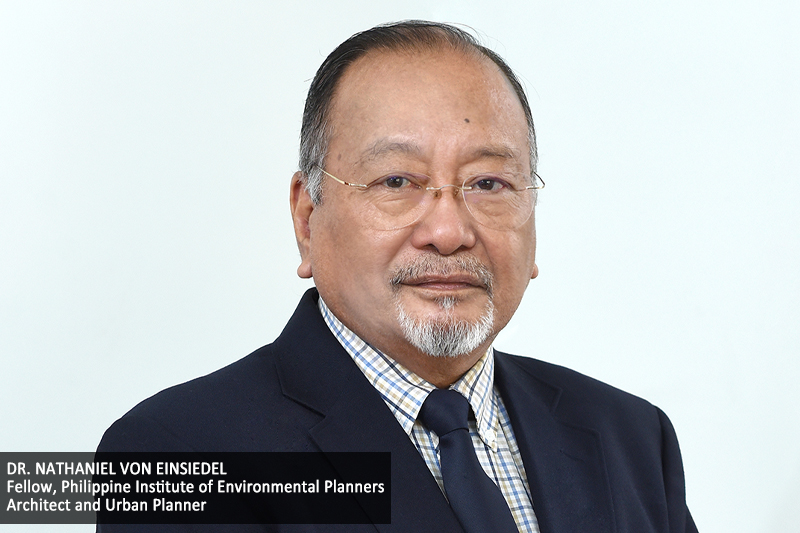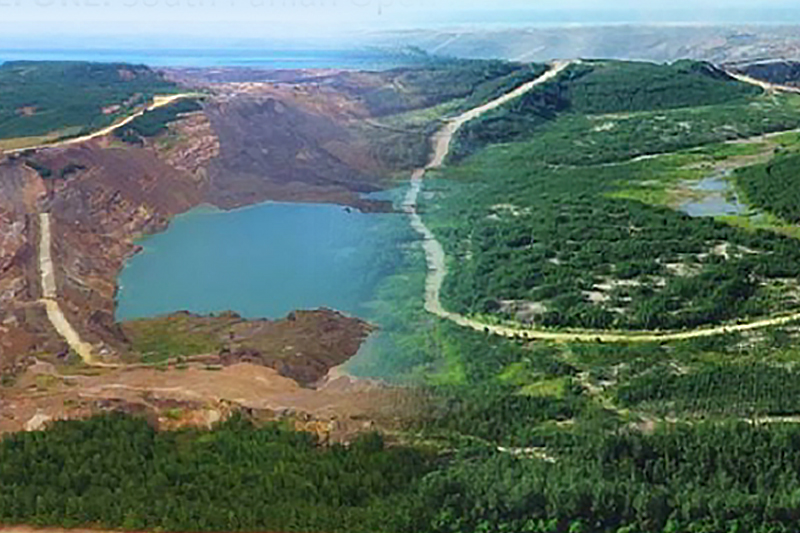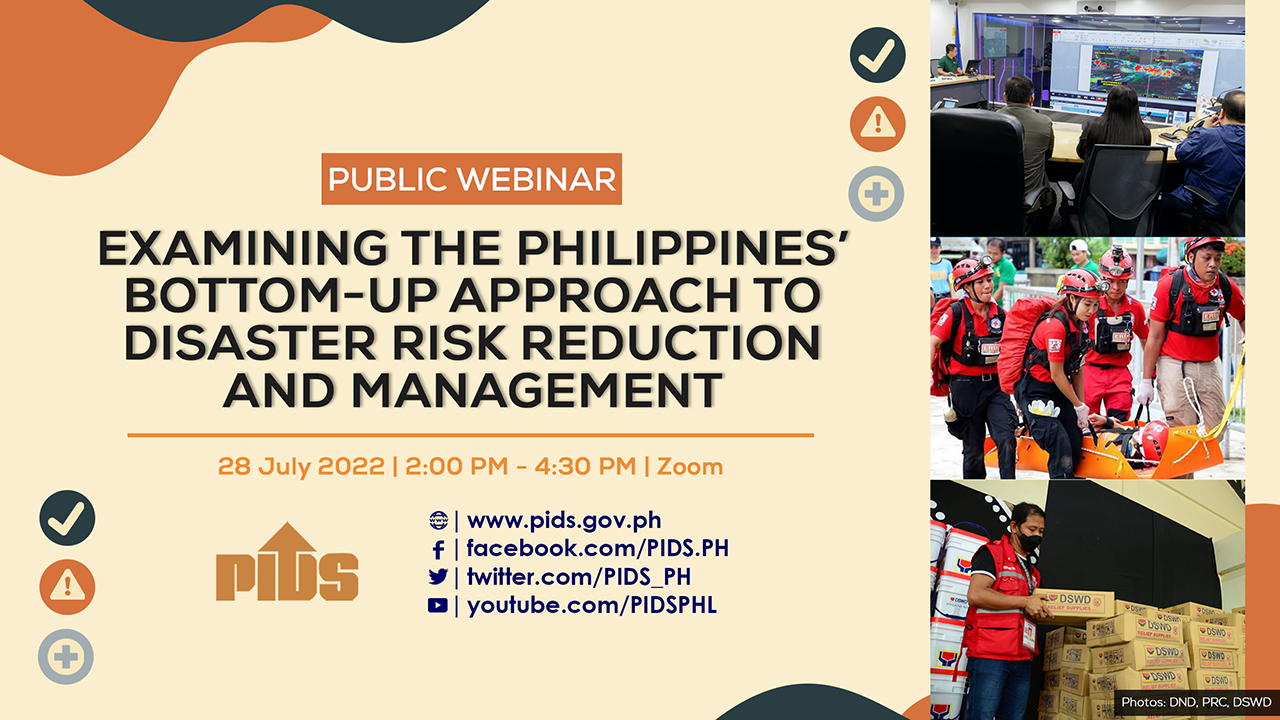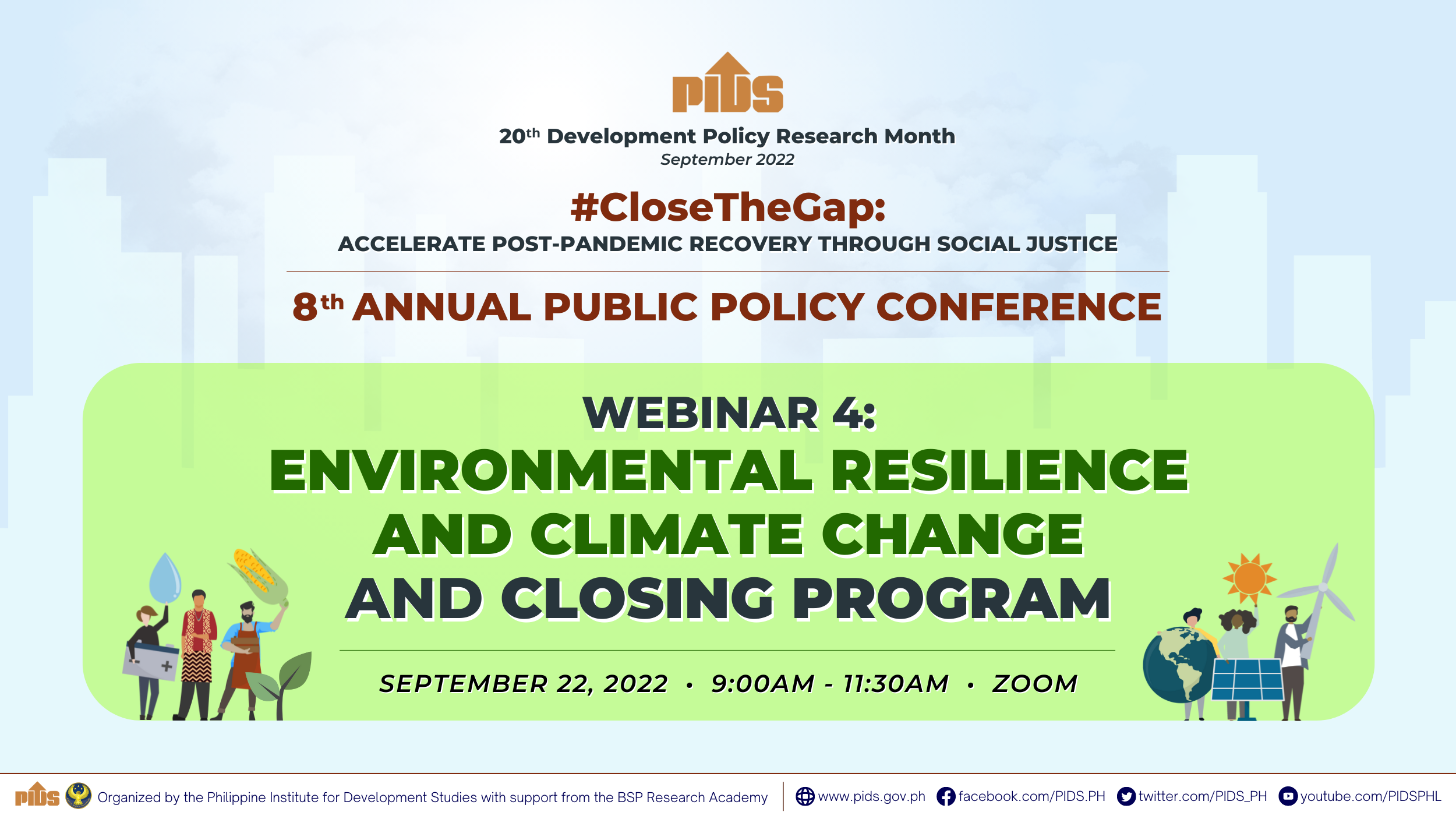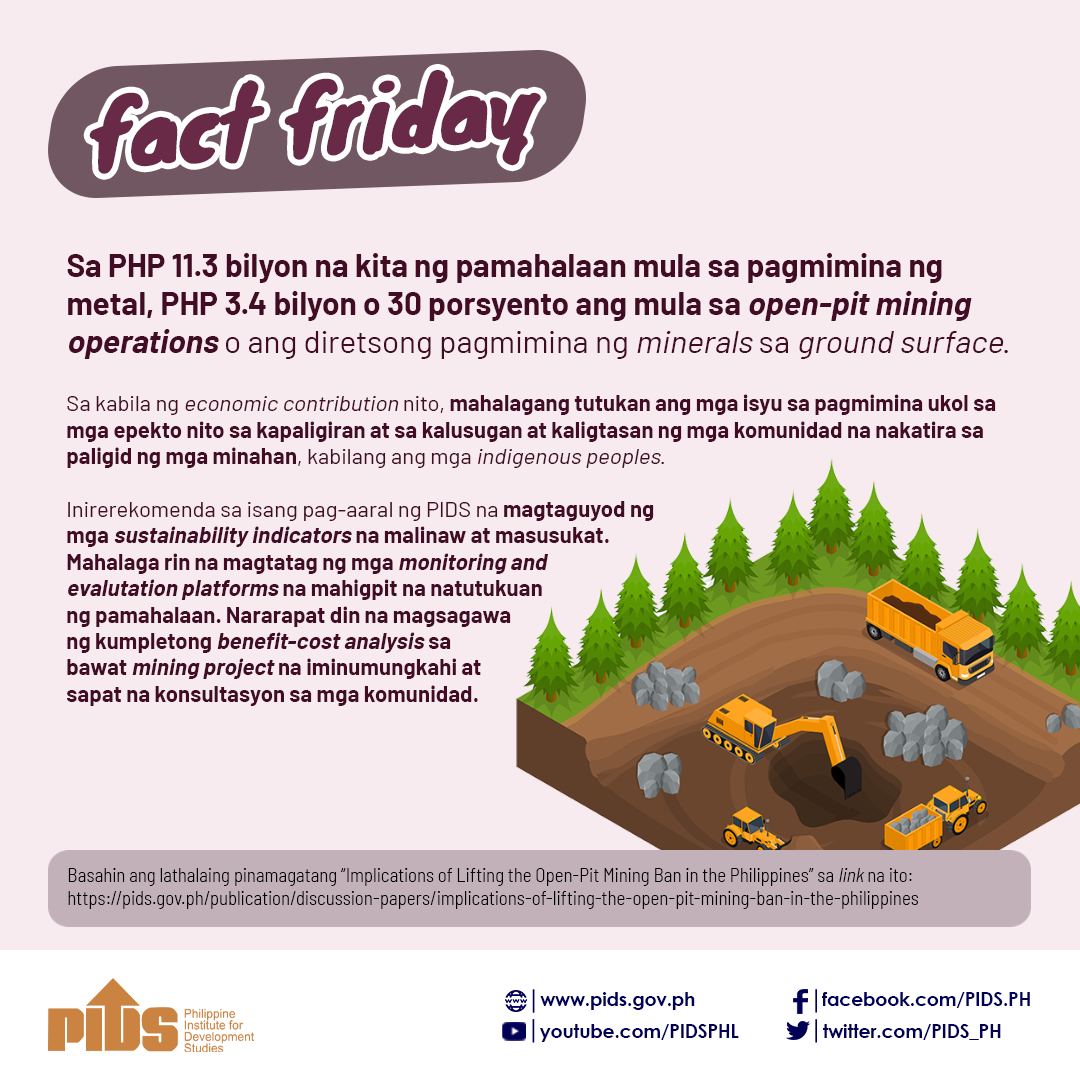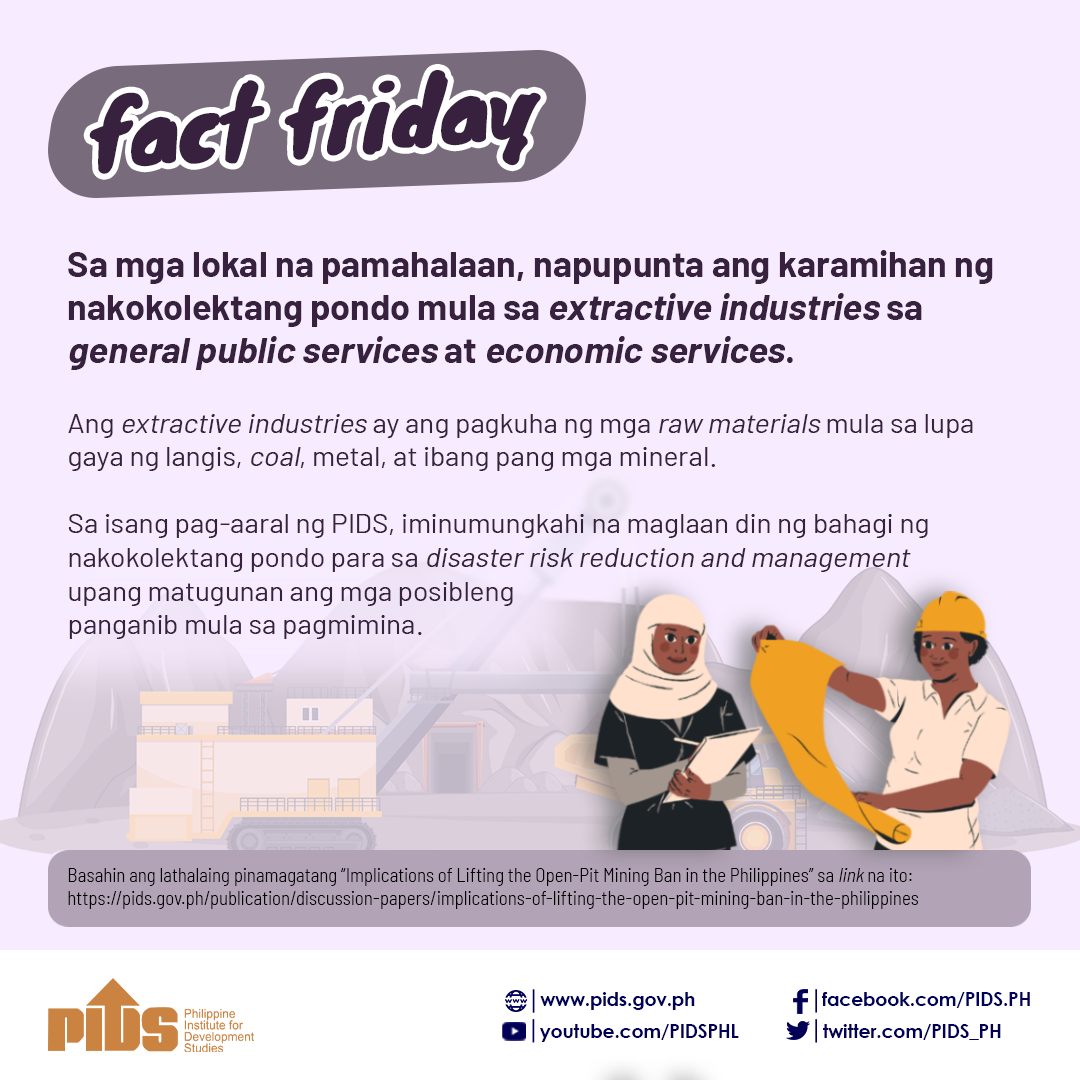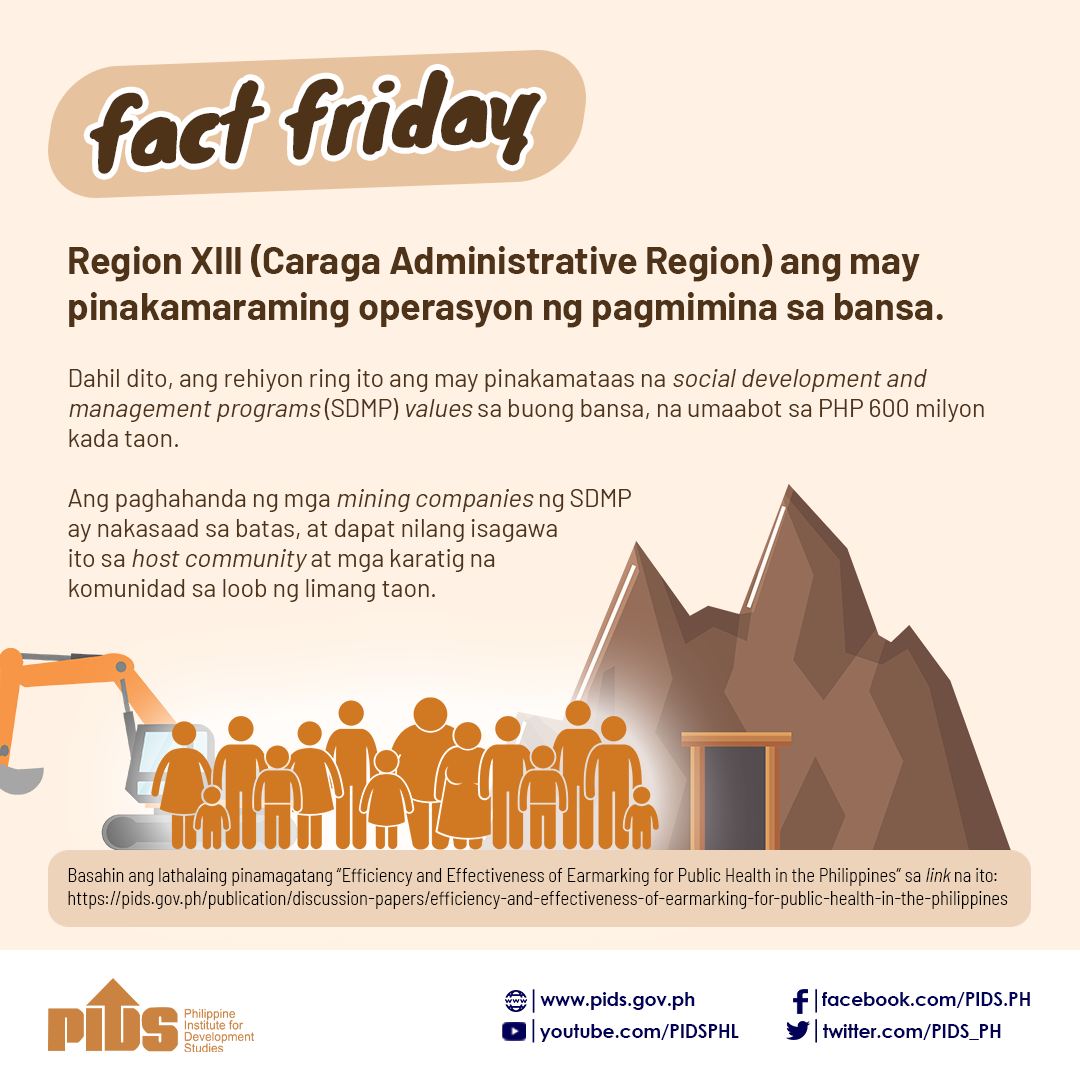"The voice of the people is the voice of God."
For a natural resource expert of the Philippine Institute for Development Studies (PIDS), the people of Palawan, particularly those directly affected, should have a huge say on whether mining activities should continue in what is considered the country’s last frontier.
Researchers should investigate whether majority of the people of Palawan and majority of the people in the province’s mining areas are really against mining, said Dr. Danilo Israel, PIDS senior research fellow, during the seminar-forum titled “The Philippine Mining and Minerals Industry: Development Issues and Recommendation for Research” last January 27 at the Palawan State University (PSU) in Puerto Princesa City.
Israel pointed out that the mining sector in Palawan is hounded by issues of non-renewability, environmental protection, indigenous people’s rights, benefit-sharing, political wrangling, as well as mining’s impact on the provincial tourism industry. Empirical data will help the province shape its plan for the future of Palawan, the PIDS economist said.
He noted that the minerals industry has little value addition and tax revenues generated from mining and quarrying are low. “Revenues from mining contributed only 0.66 percent to the total revenues of the government. Excise tax from mining contributed only 0.07 percent of the total excise tax collected by the government,” Israel said before a packed audience at the PSU Hostel.
Data from the National Statistical Coordination Board showed that in terms of economic performance, mining and quarrying accounted for only 0.91 percent of the country’s gross domestic product (GDP) from 1998 to 2012. By employment, the industries’ share for the period 2011-2012 was at 0.42 percent, based on data from the Mines and Geosciences Bureau and the Department of Labor and Employment.
Gold contributed the most to metallic mineral production with an average share of 72.24 percent from 1998 to 2012, followed by nickel with 15.16 percent and copper with 11.27 percent. However, gold is being smuggled out by small-scale mining operators, with such activities increasing since 2011 when the national government imposed a 7 percent tax on gold sold to the Central Bank.
Thought-provoking views were expressed by forum participants representing the academe, local government agencies, civil society, and the business sector particularly mining companies. One of the discussants, Jose Bayani Baylon, vice-president for communications at Nickel Asia Corp./Rio Tuba Nickel Mining Corp., suggested there was no need to choose between tourism and mining.
Palawan’s northern part, with its nice beaches, is ideal for eco-tourism, while the southern part has areas suitable for mining. Responsible mining is the key, he said, and this is something that large mining firms can do as they can be easily monitored by the provincial government. He also argued that large firms also pay taxes and take care of the environment as opposed to small-scale mining operations and smugglers. The problem is that taxes go to national agencies and not to the local governments hosting the mining areas, Baylon said.
Atty. Grizelda Mayo-Anda, executive director at the Environmental Legal Assistance Center, called for amendments to the mining law, arguing that the mining policy is structured to favor the requirements of the foreign market. Still, the government provides many fiscal incentives and other benefits to mining firms exploiting mineral and other resources.
She also stressed the need to look at abandoned mines. Aside from environmental and health risks, taxpayers are burdened as the government is footing the bill. “The government loaned PHP 34.7 million from the World Bank for the rehabilitation of the Bagacay Mines in Bagacay, Samar. Government is paying the bill using taxpayers money now and also from the future generation” the lawyer said.
Speaking for the Palawan Council for Sustainable Development, John Francisco, who serves as chief of the Environmentally Critical Areas Network Policy and Research Division, asked what could be the reason for the limited economic and fiscal contribution of mining and quarrying industries. It could be because of a limitation in the policy and development agenda on the part of the national government. One strategy is to pursue the value addition stages instead of being limited to the extraction process, he said.
Israel recommended further research on efficient and effective ways to address smuggling, how to raise tax revenues and achieve equitable sharing, and how to make small-scale mining more beneficial to operators and less damaging to the environment.
PIDS President Gilbert Llanto echoed this and called for an analytical framework that would assess mining’s costs and benefits.
“This is not exact science. In quantifying cost, you only look at the economic benefit and cost and disregard the social cost which is very important to consider and in fact, a very challenging area of research. It is important to have a comprehensive framework of analysis that would lay down all the private and social benefits and costs of mining in Palawan. In the end, it is the polity who will make the decision, and the sharing of proceeds should be in favor of the people who live here,” Llanto said.
PSU also became host to the 23rd PIDS Corner, which was inaugurated on the same day at the PSU main library. The PIDS Corner, one of the Institute’s dissemination strategies, makes available for free to students, faculty, researchers, and local policymakers copies of PIDS publications such as books, policy notes, research papers, newsletters, and the peer-reviewed Philippine Journal of Development.#
For a natural resource expert of the Philippine Institute for Development Studies (PIDS), the people of Palawan, particularly those directly affected, should have a huge say on whether mining activities should continue in what is considered the country’s last frontier.
Researchers should investigate whether majority of the people of Palawan and majority of the people in the province’s mining areas are really against mining, said Dr. Danilo Israel, PIDS senior research fellow, during the seminar-forum titled “The Philippine Mining and Minerals Industry: Development Issues and Recommendation for Research” last January 27 at the Palawan State University (PSU) in Puerto Princesa City.
Israel pointed out that the mining sector in Palawan is hounded by issues of non-renewability, environmental protection, indigenous people’s rights, benefit-sharing, political wrangling, as well as mining’s impact on the provincial tourism industry. Empirical data will help the province shape its plan for the future of Palawan, the PIDS economist said.
He noted that the minerals industry has little value addition and tax revenues generated from mining and quarrying are low. “Revenues from mining contributed only 0.66 percent to the total revenues of the government. Excise tax from mining contributed only 0.07 percent of the total excise tax collected by the government,” Israel said before a packed audience at the PSU Hostel.
Data from the National Statistical Coordination Board showed that in terms of economic performance, mining and quarrying accounted for only 0.91 percent of the country’s gross domestic product (GDP) from 1998 to 2012. By employment, the industries’ share for the period 2011-2012 was at 0.42 percent, based on data from the Mines and Geosciences Bureau and the Department of Labor and Employment.
Gold contributed the most to metallic mineral production with an average share of 72.24 percent from 1998 to 2012, followed by nickel with 15.16 percent and copper with 11.27 percent. However, gold is being smuggled out by small-scale mining operators, with such activities increasing since 2011 when the national government imposed a 7 percent tax on gold sold to the Central Bank.
Thought-provoking views were expressed by forum participants representing the academe, local government agencies, civil society, and the business sector particularly mining companies. One of the discussants, Jose Bayani Baylon, vice-president for communications at Nickel Asia Corp./Rio Tuba Nickel Mining Corp., suggested there was no need to choose between tourism and mining.
Palawan’s northern part, with its nice beaches, is ideal for eco-tourism, while the southern part has areas suitable for mining. Responsible mining is the key, he said, and this is something that large mining firms can do as they can be easily monitored by the provincial government. He also argued that large firms also pay taxes and take care of the environment as opposed to small-scale mining operations and smugglers. The problem is that taxes go to national agencies and not to the local governments hosting the mining areas, Baylon said.
Atty. Grizelda Mayo-Anda, executive director at the Environmental Legal Assistance Center, called for amendments to the mining law, arguing that the mining policy is structured to favor the requirements of the foreign market. Still, the government provides many fiscal incentives and other benefits to mining firms exploiting mineral and other resources.
She also stressed the need to look at abandoned mines. Aside from environmental and health risks, taxpayers are burdened as the government is footing the bill. “The government loaned PHP 34.7 million from the World Bank for the rehabilitation of the Bagacay Mines in Bagacay, Samar. Government is paying the bill using taxpayers money now and also from the future generation” the lawyer said.
Speaking for the Palawan Council for Sustainable Development, John Francisco, who serves as chief of the Environmentally Critical Areas Network Policy and Research Division, asked what could be the reason for the limited economic and fiscal contribution of mining and quarrying industries. It could be because of a limitation in the policy and development agenda on the part of the national government. One strategy is to pursue the value addition stages instead of being limited to the extraction process, he said.
Israel recommended further research on efficient and effective ways to address smuggling, how to raise tax revenues and achieve equitable sharing, and how to make small-scale mining more beneficial to operators and less damaging to the environment.
PIDS President Gilbert Llanto echoed this and called for an analytical framework that would assess mining’s costs and benefits.
“This is not exact science. In quantifying cost, you only look at the economic benefit and cost and disregard the social cost which is very important to consider and in fact, a very challenging area of research. It is important to have a comprehensive framework of analysis that would lay down all the private and social benefits and costs of mining in Palawan. In the end, it is the polity who will make the decision, and the sharing of proceeds should be in favor of the people who live here,” Llanto said.
PSU also became host to the 23rd PIDS Corner, which was inaugurated on the same day at the PSU main library. The PIDS Corner, one of the Institute’s dissemination strategies, makes available for free to students, faculty, researchers, and local policymakers copies of PIDS publications such as books, policy notes, research papers, newsletters, and the peer-reviewed Philippine Journal of Development.#

